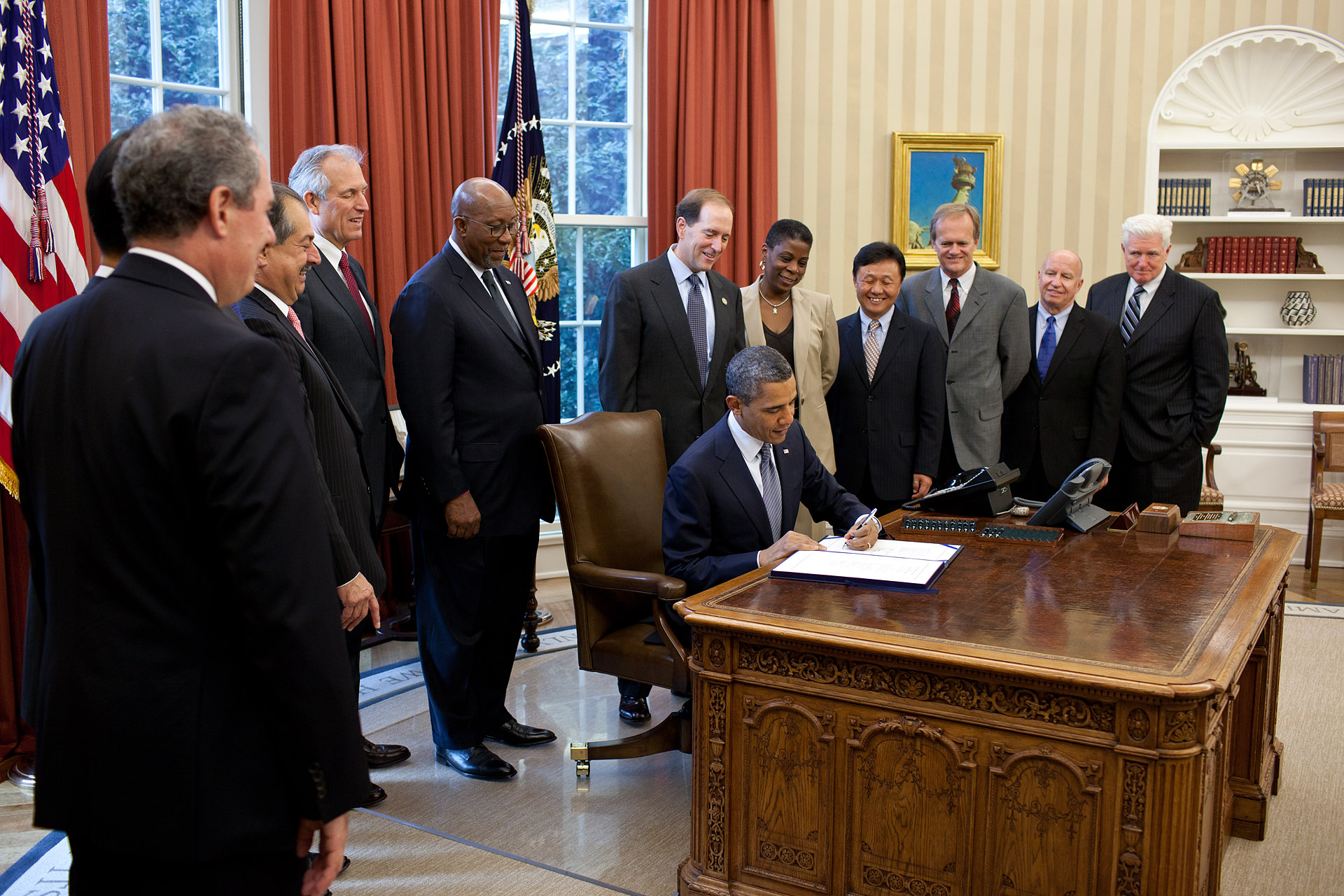
This morning, President Obama signed legislation implementing three job-supporting trade agreements with Korea, Colombia, and Panama. These trade agreements will help put Americans back to work and grow America’s economy.
At the same time, the President signed legislation renewing Trade Adjustment Assistance (TAA) that helps workers who have been hurt by increased global competition. He also signed legislation to renew trade preference programs that sustain the United States’ commitment to trade and economic development that lifts up some of the world’s poorest people.
With all the stories and speculation flying around the news these days, I know it’s hard to separate fact from fiction sometimes. So let me share three quick points that I hope will help you understand why this is good news for all American workers and families.
First, these agreements will increase U.S. exports and American jobs. The Korea agreement will support an estimated 70,000 U.S. jobs and increase U.S. GDP by at least $11 billion due to increased exports of goods alone. Chances are you’ll benefit from these agreements if you work for or with anyone who makes, grows, or provides goods and services to Korea, Colombia, or Panama. These agreements make it easier and more cost-effective to sell Made-in-the-USA products to consumers in each of these countries. In turn, increased exports of U.S. goods and services will support more and better jobs for farmers, ranchers, manufacturers, service providers, workers, and businesses all across the United States. And all three agreements have groundbreaking protections for labor rights, the environment, and intellectual property, so American workers and businesses will be able to compete on a level playing field.
Second, the President worked to improve these agreements when he came into office. All three faced significant opposition from Congress. But instead of surrendering to the status quo, the President told me to get to work. With Korea, he sent me back to the negotiating table to secure additional market access for U.S. automobile manufacturers. With Colombia, he stood firm on the principle that U.S. trade agreements must reflect American values, including respect for and protection of workers’ rights. And with Panama, he made sure that we addressed key concerns related to tax transparency and labor conditions. In each case, the President held out for a better, more balanced deal.
That brings me to the third and final point: President Obama also signed today legislation that strengthens and streamlines TAA, and renews key preference programs –- the Generalized System of Preferences (GSP) and the Andean Trade Preference Act (ATPA). Both TAA and our preference programs are key elements of President Obama’s balanced approach to trade. TAA helps those workers whose jobs are displaced by trade by providing job re-training programs, lower health insurance premiums, and assistance that keeps families on their feet. And GSP and ATPA uphold our commitment to support trade and economic growth that lifts up some of the world’s poorest people while helping American businesses get inputs they need and American consumers.
It’s important to note that Congress approved these trade measures with significant support in record time. In fact, the Korea agreement received more recorded votes than any free trade agreement in history. I think that’s a good indication that the President’s principled and pragmatic leadership has created a more balanced trade policy –- one that holds the promise of open markets and a level playing field with increased U.S. exports and better American jobs for many years to come. And since President Obama has prioritized enforcement of America’s trade agreements since day one, Americans can also be assured that we’ll hold our trading partners accountable for their obligations moving forward.
President Obama’s historic action today is a big step forward on trade and jobs. We look forward to working with Congress and the American people to continue pursuing a balanced trade policy that keeps American producers competitive abroad and supports jobs for more hard-working Americans here at home.



